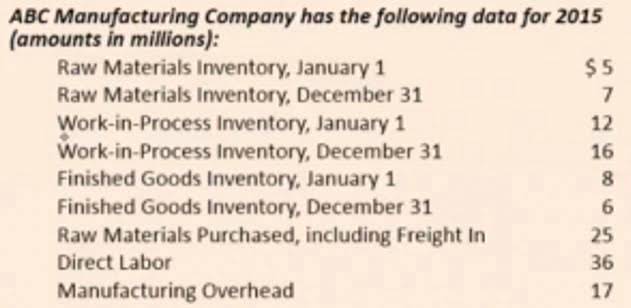
They take on the additional role of accountant and usually have broader managerial responsibilities. As mentioned earlier, the primary difference between a full charge and a regular bookkeeper is the fact that full charge bookkeepers manage all the accounting needs of the business. Because of this added responsibility, full charge bookkeepers usually report directly to the higher-ups. Sometimes, they also enlist the help of outside professionals like CPAs (certified public accountants) for certain tasks. While full charge bookkeepers maintain accurate records and help keep the financial wheels turning, accountants often use the data bookkeepers provide to guide strategic financial decisions. They can help businesses forecast future financial situations, plan budgets, and advise on tax-related issues.
- Also, the formal education requirements are higher for an accountant, and they need to hold a bachelor’s degree in accounting or finances at least.
- Full-charge bookkeepers are key to keeping financial records accurate and complete.
- They are also typically adept at handling complex transactions, which full-charge bookkeepers may not necessarily be.
- Handling accounts payable includes tasks such as verifying invoices, obtaining necessary approvals for payment, and scheduling payments to meet deadlines.
- An in-house bookkeeper gives you continuity and knows your business’s finances well.
Books and Balances: Your Partner in Full Charge Bookkeeping
In the intricate landscape of financial management, the roles of full-charge bookkeepers and accountants stand as distinct pillars, each contributing uniquely to an organization’s fiscal prowess. Distinguishing between these roles is pivotal for enterprises aiming to fine-tune their financial operations. Proficient knowledge of accounting and financial regulatory standards is a must. Proficiency is fundamental for full charge bookkeepers who manage all the accounting work done in a company. This knowledge affects the consistency and accuracy of financial statements and other reports.

Full charge bookkeeper salary
- This dedication to quality and customer service sets Books and Balances apart in bookkeeping.
- However, as your business appetites grow and your company scales, you might ask yourself whether this role should be taken to a higher level as well.
- Many small businesses operate on thin margins, and the financial acumen provided by a full charge bookkeeper can often make the difference between success and failure.
- Either way, a good first step in the process is to secure a provider of outsourced accounting and bookkeeping services to help fill these demands.
- Sailing the vast ocean of business finance, a full-charge bookkeeper acts as the skilled navigator and controller of the ship, steering it through the complex waters of bookkeeping tasks and accounting duties.
Although it all depends on your business’s current needs and size, here are some of the main benefits of full-charge bookkeeping that you should keep in mind. As the demand for comprehensive financial management services continues to grow, the job market for full charge bookkeepers remains robust. According to Salary.com, the median salary for a full charge bookkeeper in the United States is around $43,890 per year.
- Both options have their benefits, and the right choice can greatly affect your finances.
- This position requires a high level of expertise in accounting principles and procedures, as well as strong analytical and organizational skills.
- By delegating these tasks to a professional, you can ensure that your financial records are accurate and up to date while focusing on the areas of your business where you can make the most impact.
- At the same time, larger businesses, or those with more complex financial needs, might require the advanced expertise of an accountant.
- The cash flow statement tracks the company’s cash inflows and outflows during a specific period.
B. Decision-making and Reporting:
Their expertise and skills make them highly valuable to businesses, which often results in better compensation packages. On the other hand, a regular bookkeeper’s salary may be lower as they typically handle more routine tasks and may have a narrower scope of responsibility. Many businesses find value in outsourcing bookkeeping services, particularly when it comes to employing full charge bookkeepers. This strategy can significantly cut costs, as it allows firms to benefit from expert financial management without the expense of maintaining a full-time, in-house accounting department. Outsourcing provides access to bookkeepers who can offer a higher level of service, often at a fraction of the cost of a full-time employee. With a full charge bookkeeper at the helm, a business experiences increased efficiency in managing its finances.
Handling Comprehensive Bookkeeping and Accounting Needs
Ultimately, understanding the difference between a bookkeeper and a full charge bookkeeper can be crucial in deciding how to manage a business’s finances effectively. The choice depends on a company’s size, the complexity of financial transactions, and specific business requirements. Whether choosing a bookkeeper, full charge bookkeeper, or utilizing a combination of both, the goal remains accurate, reliable, what is a full charge bookkeeper and efficient financial management to support business success. The distinction between a regular bookkeeper and a full charge bookkeeper primarily resides in their level of responsibility and the complexity of their tasks. Accountants, on the other hand, operate at a higher level of financial strategy. They are usually involved in more complex financial planning, including tax planning and business analysis.

B. Produce Financial Statements and Reports:
Cloud-based platforms allow for seamless sharing of financial data, making it easier to work remotely and collaborate on projects. This level of accessibility and flexibility has transformed the way full charge bookkeepers operate, empowering them to deliver their services more efficiently. Automation and technology have revolutionized the way bookkeeping tasks are performed. With the advent of sophisticated accounting software and cloud-based platforms, full charge bookkeepers have access to powerful tools that streamline their work processes and enhance efficiency.
Etsy Xero Integration Guide for Efficient Online Shop Management

Companies need to source candidates thoughtfully and provide appropriate training. For small businesses and startups, navigating the intricate world of finance can feel daunting. With limited resources, they often need help handling accounting in-house or seeking external support. This is where the full-charge bookkeeper emerges as a vital financial guardian, wielding a multifaceted skillset to keep the financial gears turning smoothly. Obtaining the right education and training is the first step towards becoming a full charge bookkeeper. While a college degree is not always required, it can greatly enhance your credentials and increase your chances of securing a good position in the field.
Proper time management allows you to allocate the right amount of time to each task, ensuring that you can deliver accurate and timely financial information to the business. Proficiency in accounting https://www.bookstime.com/articles/accounting-errors software is a must-have skill for any full charge bookkeeper. With the advancement of technology, most businesses now rely on accounting software to manage their financial transactions and records.
